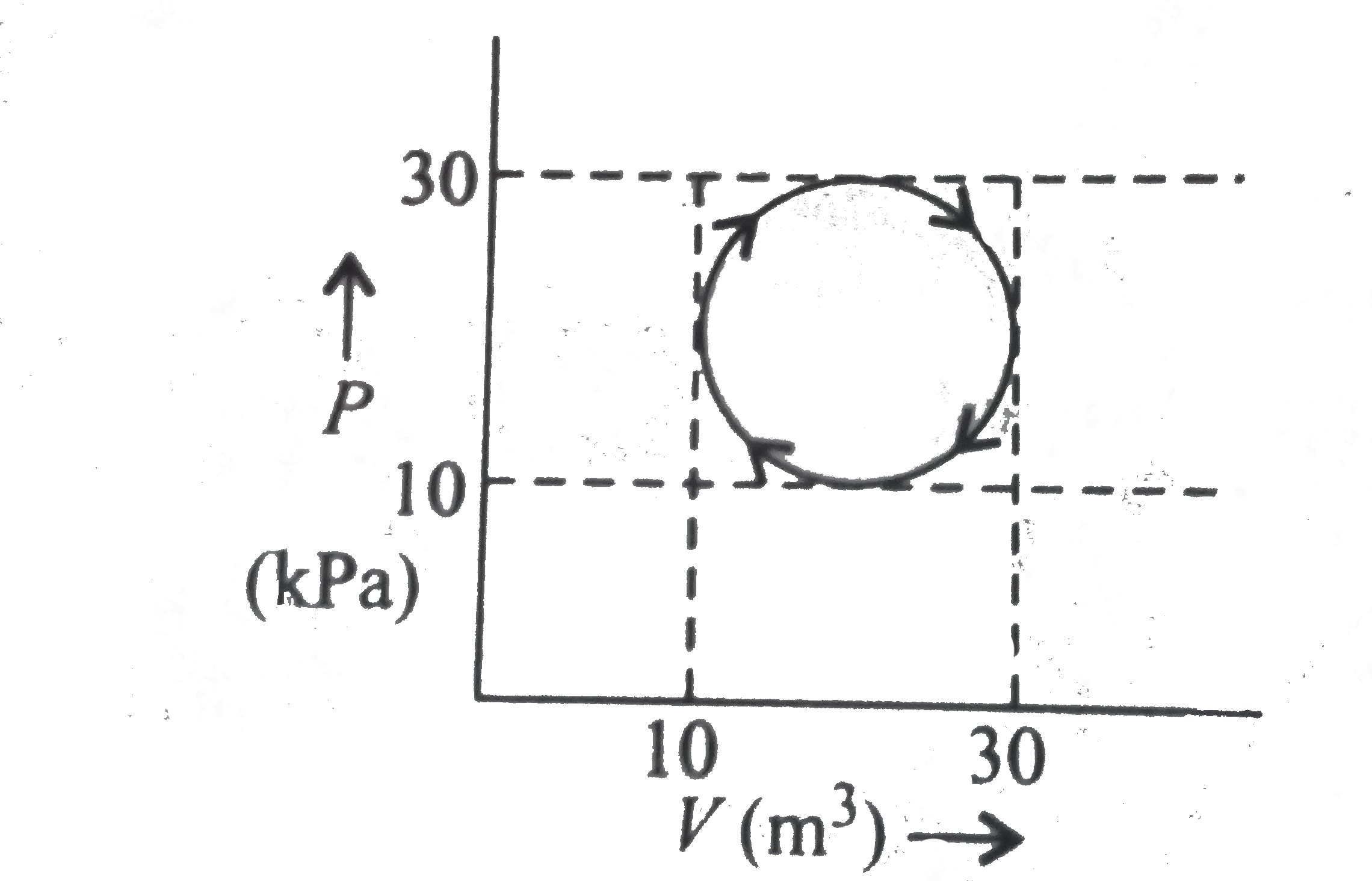Complete Solutions to Exercises (Multiple Correct) of chapter THERMODYNAMICS of Class 11 book with complete answers and questions
| Class 11 | CHEMISTRY |
| Chapter | THERMODYNAMICS |
| CENGAGE CHEMISTRY | Exercises (Multiple Correct) |
| Number Of Questions | 50 |
| Academic Year | 2023-24 |
Select the correct statement
03:17View SolutionWhich of the following are intensive properties?
06:30View SolutionWhich of the following are extensive properties ?
01:57View SolutionWhich one is not correct for a cyclic process as shown in the figure ?
 03:04View Solution
03:04View SolutionIf `w_(1).w_(2),w_(3)` and `w_(4)` are work done in isothermal, adiabatic, isobaric, and isochoric reversible expansion for an ideal gas, respectively, then
02:09View SolutionAverage value of poisson's ratio for a mixture of `2` mole of each gas `A` and `B` is `1.66`, then
01:57View SolutionA reaction attains equilibrium state under standard conditions, then:
01:48View SolutionThe poisson's ratio for `O_(2)` is `1.4`. Which of the following are correct for `O_(2)`?
05:06View SolutionSelect the correct statements.
08:58View SolutionSelect the correct statements for the equilibrium under standard conditions.
`H_(2)O(s) hArr H_(2)O(l),DeltaS_(1)^(Theta)`
`H_(2)O(l) hArr H_(2)O(v), Delta_(2)^(Theta)`
`H_(2)O(s) hArr H_(2)O(v), DeltaS_(3)^(Theta)`04:18View SolutionWhich is intensive property ?
01:52View SolutionWhich of the following statements are correct?
02:06View SolutionFollowing enthalpy changes are given:
`alpha-Dglucose (s) rarr alpha-D glucoes (aq), DeltaH = 10.72 kJ`
`beta-D glucose (s) rarrbeta-D glucose(aq), DeltaH = 4.68kJ`
`alpha-D glucose (aq) rarr beta-D glucose(aq), DeltaH =1.16 kJ`
Calculate enthalpy change in
`alpha-D glucose (s) rarr beta-D glucose (s)`01:23View SolutionIf `x` and `y` are arbitrary extensive variables, then
02:46View SolutionIf `x` and `y` are arbitrary intensive variables, then
01:33View SolutionFor which process does `DeltaU = 0` holds true?
01:35View SolutionWhich is correct about `DeltaG`?
05:41View SolutionWhich is not correct relationship between `DeltaG^(Theta)` and equilibrium constant `K_(P)`.
03:06View SolutionWhich is not correct relationship?
02:17View SolutionWhich of the following are endothermic processes?
02:24View SolutionFor an ideal gas undergoing isothermal reversible expansion
02:38View SolutionIn which of the following reactions, `DeltaH gt DeltaU`?
02:25View SolutionWhich of the following are not correct at `298K`?
02:18View SolutionUnder which of the conditions the process will be spontaneous?
01:58View SolutionThe correct expressions for an adiabatic process are
04:23View SolutionDuring an adiabatic reversibly expansion of an ideal gas
02:38View SolutionThe intensive property/properties is/are
01:43View SolutionThe second law of thermodynamics states that
02:34View SolutionThe criteria for sponaeity of a process is/are
02:15View SolutionWhich of the following are endothermic processes?
02:24View SolutionFor the adiabatic expansion of an ideal as
02:41View SolutionIn which of the following entropy increases?
01:47View SolutionWhich of the following are irreversible processes
03:51View SolutionWhich of the options give below are correct?
03:34View SolutionWhich of the following are thermodynamically stable?
02:11View SolutionWhich of the following affect the heat of reaction?
03:27View SolutionWhich of the following type of energies are involved in Born Haber's cycle?
04:30View SolutionWhich of the following are true about resonance enegry?
02:18View SolutionHess' law is applicable for determination of enthalpy of
02:27View SolutionIndicate in which case/cases the spontaneity of a change is favoured when
02:47View SolutionEndothermic reactions, having `DeltaS = +ve` masy be spontaneous if
02:33View SolutionIf `DeltaH` is the enthalpy change and `DeltaU` the change in internal energy accompanying a gaseous reaction, then
01:26View SolutionAn isolated system is that system in which
02:21View SolutionIn a reaction, `DeltaH` and `DeltaS` both are more than zero. In which of the following cases, the reaction would not be spontaneous?
02:19View SolutionState the first law of thermodynamics.
02:54View SolutionIn which reaction(s), `DeltaS` in negative?
05:27View SolutionThe heat evolved in the combustion of benzene is given by
`C_(6)H_(6) (l) +7(1)/(2)O_(2)(g)rarr 3H_(2)O(l)+6CO_(2)(g), DeltaH =- 781.0 kcal mol^(-1)`
When `156g` of `C_(6)H_(6)` is burnt in a open container, the amount of heat energy released will be04:56View SolutionThe heat of neutralization for a strong acid by a strong base is a constant
03:04View SolutionThe enthalpy change for the process
`C("graphite") rarr C(g)`is called01:05View SolutionEnthalpy change equal internal energy change when
02:09View Solution
Exercises (Multiple Correct) questions and complete solutions for chapter THERMODYNAMICS of CENGAGE CHEMISTRY (ENGLISH) of Class 11
All Exercises from CENGAGE CHEMISTRY Class 11 CHEMISTRY THERMODYNAMICS
- Archives (Assertion-Reasoning)
- Archives (Fill In The Blanks)
- Archives (Interger)
- Archives (Multiple Correct)
- Archives (Single Correct)
- Archives (Subjective)
- Archives (True/False)
- Ex 6.1
- Ex 6.2
- Ex 6.3
- Ex 6.4
- Ex 6.5
- Exercise
- Exercises (Assertion-Reasoning)
- Exercises (Fill In The Blanks)
- Exercises (Interger)
- Exercises (Linked Comprehension)
- Exercises (Multiple Correct)
- Exercises (Single Correct)
- Exercises (Subjective)
- Exercises (True/False)
- Multiple correct Answer Type
- Paragraph for Problem
- Solved Examples
- True/False Type
